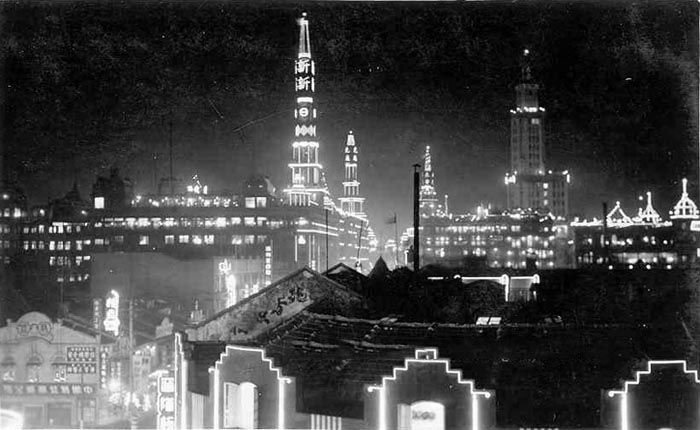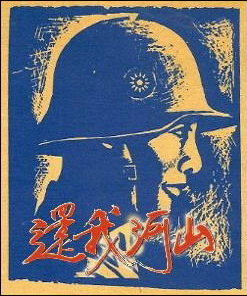Political Prisoners in Shanghai in 1934
- By Guest blogger
- 5 September, 2014
- No Comments
 What kind of political prisoners were incarcerated in Shanghai in the 1930s? What nationalities were they? Why were they jailed? These are questions that Australian historian Anne Atkinson has started asking herself as she transcribes her mother’s notes from her childhood in Shanghai and comes across surprising historical facts.
What kind of political prisoners were incarcerated in Shanghai in the 1930s? What nationalities were they? Why were they jailed? These are questions that Australian historian Anne Atkinson has started asking herself as she transcribes her mother’s notes from her childhood in Shanghai and comes across surprising historical facts.
The questions are linked to one particular passage in the notes describing a six-month period in 1934 when Atkinson’s mother and her two siblings were left in a children’s boarding house because their parents were going abroad. The boarding house was run by a German couple, Mr and Mrs H., who were evidently supporters of Hitler’s new regime. Atkinson’s mother and her two siblings, by contrast, were born to a Portuguese father and Russian Jewish mother. It was therefore, an extremely uncomfortable 6 months, as the notes explain:
This was in the early days of the Nazis. When the Hitler Jugend (Hitler Youth) was started it spread its hold on the German community in Shanghai. At the hostel the children had all joined the Hitler Jugend and were learning to March and sing Nazi songs. Hilda, the 15-year-old daughter was shy and couldn’t bring her self to give the Nazi salute, which they were supposed to do on meeting other members even when crossing the street. Hans or Herman, her younger brother, was an ardent Hitler youth member. Dressed in his uniform – which he loved – and with his sneering lips he would give the Nazi salute and Heil Hitler to one and all.
One night they took us to their German school. It was to me a very large long building with wide corridors in the middle in which there were large glass cabinets with German Ships. The Emden, etc.[1] We listened to Hitler Jugend songs and stirring talks to the kids. With Jewish blood in us, we were not impressed.
One day there was the sound of a baby crying upstairs, another time a screaming sobbing child. I asked Hilda what was going on. She looked around and took me up to a darkened room like a ward. Beds in rows accommodated babies and children. It was so dismal and I asked why it wasn’t bright and light. She said they were ‘children of political prisoners and were affected mentally being taken from their imprisoned parents’ and were being cared for by the H.’s. They seemed to be in the beds permanently. They cried out, but most of the time they were passive. I think we talked to them and visited them with Hilda who looked after them mostly. I don’t know who looked after them in the summer holidays.
We went to a beach resort popular with German people in the summer holidays[2]. The H.’s had us all act and sing in an operetta, only the characters were unlikely ones. I was the princess – a tall gangly 14 year old and pimply. The prince was a Russian boy with a crew cut and little and chunky. The star of he show was a girl violinist who made her name on the concert stage. I remember watching the audience react to our play – feeling awkward in a role I shouldn’t have been made to play. The audience, all adult Germans enjoyed it thoroughly. In my sensitive early teens, I didn’t think it was that good and thought the laughter was more like ridicule.
Who might the political prisoners have been? What nationality? We would love to hear suggestions!
[1] SMS Emden (“His Majesty’s Ship Emden”) was built for the Imperial German Navy (Kaiserliche Marine) and launched in 1908. Emden spent the majority of her career overseas in the German East Asia Squadron, based in Tsingtao, in theKiautschou Bay concession in China In late October 1914, Emden launched a surprise attack on Penang;.. in the resultingBattle of Penang, she sank the Russian cruiser Zhemchug and the French destroyer Mousquet Commander Müller then tookEmden to raid the Cocos Islands, where the Emden was attacked by the Australian cruiser HMAS Sydney. The more powerful Australian ship quickly inflicted serious damage and forced Muller to run his ship aground to prevent her from sinking. Most of the survivors were taken prisoner, except for a small party who had escaped and returned to Germany. (From Wikipedia)
[2] The resort could have been Tsingtao (Qingdao), which had previously been a German navel base and colony before coming under Japanese control. In 1922 it reverted to Chinese control until it fell to the Japanese in 1938.



 Copyright © 2024
Copyright © 2024
Leave a Reply